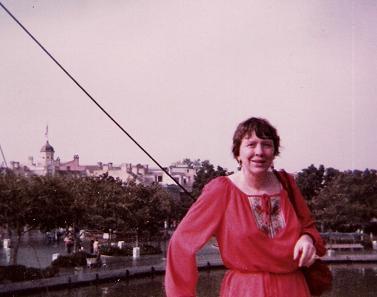Morning Thoughts on Poetry
16 Rahmat 163 B.E. – July 9, 2006 A.D.
Today a new class started. The name of the class is EDU660 Curriculum Design and Evaluation and the book for the course is Curriculum Alternative Approaches, Ongoing Issues by Colin J. Marsh and George Willis. This doesn’t appear to have much to do with spiritual poetry or even poetry in general, unless one is designing an curriculum for a class on poetry. However, the book gives several definitions for curriculum and asks the reader to construct an “encompassing” and “eclectic” definition for curriculum using the definitions in the book and personal viewpoints.
In considering my personal definition of curriculum, I find that it’s based on both my spiritual beliefs and my concept of a poet’s duty. I believe a poet has the duty to write about not only the world in its present condition, but also the future world as the poet envisions it. I believe a poet needs to point out both what is right and wrong about the world. I believe is the soul of humanity, helping to guide and giving encouragement.
Spiritually I believe that humanity is a single species. I believe there is only one divine creator, which is an unknowable essence, made know to humanity through various prophets sent to earth by the creator. These divine prophets, messengers, or manifestations reflect the attributes of God to humanity. They came at different times in history to help us carry forward “an ever advancing civilization” and assist the individual "to know and love God". I believe that all divine religions are gifts from God and that the reason the Creator sent different manifestations, which is the reason we have different religions, at different times in history is because humanity is growing, moving through developmental stages and that as a results the messengers come to instruct us on the next stage of development.
Today we look at the external trappings of religions, history of the era when the revelation occurred, the different manifestations who revealed them, the way various sects and leaders of those religions interpret their faith, and the way our own heritages and cultural sees other religions. We look at the differences and not the commonalities, as consequences we see those differences being important rather than what is in common among the various faiths.
I’m not going to write my personal definition of curriculum at this point. If I did that it would ramble on and on, without getting to a point. Give me a few days to focus my thoughts and consider all the components of the definition more thoroughly. I’ll post my personal definition on or before next Sunday.
Today a new class started. The name of the class is EDU660 Curriculum Design and Evaluation and the book for the course is Curriculum Alternative Approaches, Ongoing Issues by Colin J. Marsh and George Willis. This doesn’t appear to have much to do with spiritual poetry or even poetry in general, unless one is designing an curriculum for a class on poetry. However, the book gives several definitions for curriculum and asks the reader to construct an “encompassing” and “eclectic” definition for curriculum using the definitions in the book and personal viewpoints.
In considering my personal definition of curriculum, I find that it’s based on both my spiritual beliefs and my concept of a poet’s duty. I believe a poet has the duty to write about not only the world in its present condition, but also the future world as the poet envisions it. I believe a poet needs to point out both what is right and wrong about the world. I believe is the soul of humanity, helping to guide and giving encouragement.
Spiritually I believe that humanity is a single species. I believe there is only one divine creator, which is an unknowable essence, made know to humanity through various prophets sent to earth by the creator. These divine prophets, messengers, or manifestations reflect the attributes of God to humanity. They came at different times in history to help us carry forward “an ever advancing civilization” and assist the individual "to know and love God". I believe that all divine religions are gifts from God and that the reason the Creator sent different manifestations, which is the reason we have different religions, at different times in history is because humanity is growing, moving through developmental stages and that as a results the messengers come to instruct us on the next stage of development.
Today we look at the external trappings of religions, history of the era when the revelation occurred, the different manifestations who revealed them, the way various sects and leaders of those religions interpret their faith, and the way our own heritages and cultural sees other religions. We look at the differences and not the commonalities, as consequences we see those differences being important rather than what is in common among the various faiths.
I’m not going to write my personal definition of curriculum at this point. If I did that it would ramble on and on, without getting to a point. Give me a few days to focus my thoughts and consider all the components of the definition more thoroughly. I’ll post my personal definition on or before next Sunday.



0 Comments:
Post a Comment
Subscribe to Post Comments [Atom]
<< Home